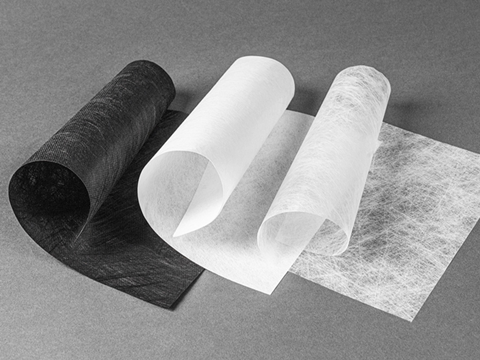
Freudenberg Performance Materials’ customizable fine denier spunbond nonwoven materials, available as bicomponent or mono-fibres, can be used to produce lightweight desiccant bags and coating substrates, among other applications.
Customers can opt for a mono-material composition of PET, PE, or PP. Alternatively, they can opt for different compositions, such as PET/PE, PET/coPET, or PET/mPP, using mono or bico fibres with titres spanning from 2.5 to 3 dTx.
Weighing between 17 and 140gsm, the nonwovens are thermally bonded using calendaring or point sealing; this is set to offer high tensile and tear strength, alongside a smooth and uniform surface, while the materials remain lightweight.
Freudenberg recommends the PET/PE fine denier materials for dehumidifier products like desiccant bags; the pouches can reportedly be produced at speed, without requiring chemical binders or additional treatments, due to their ‘exceptional’ hot sealing capabilities.
Furthermore, the technology is said to extend the lifespan of dessicant bags with high strength, durability, and abrasion resistance.
Since the materials are designed to offer thermal stability, resist chemicals, and provide a smooth and even finish, they can also be used as coating substrates. Customers can reportedly combine different polymers, fibre types, and bonding technologies to tailor their materials to different coating, laminating, and concealing applications.
Cold wax depilatory strips, for instance, are thought to require a very lightweight, flat-bonded version of the material, since this would achieve the necessary flexibility and mechanical strength.
Other potential applications include crop covers in agriculture; roofing and facade membranes, vapour barriers, and house wrappings for the construction industry; protective layers for glass fibre, nano and activated carbon; and liquid filtration media, including coolants and lubricants, under the Filtura brand.
Further industrial and consumer applications are also possible, Freudenberg concludes.
All the way back in 2023, Panasonic unveiled a thermoset stretchable film polymer substrate for printed electronics. Based on Panasonic’s proprietary non-silicone thermoset polymer chemistry, it is said to offer softness, conformability, high-temperature resistance, and ultra-low permanent deformation after stretching.
Last year, Freudenberg Medical produced a line of single-use tubing and bottle cap assemblies, y-connector manifolds, and more with its extrusion and moulding capabilities. All its assemblies are said to be cleanroom-manufactured according to customer specifications and intend to secure and streamline biopharma processes like fluid transfer.
If you liked this story, you might also enjoy:
The ultimate guide to the Packaging and Packaging Waste Regulation in 2025
How are the top brands progressing on packaging sustainability?
Everything you need to know about global packaging sustainability regulation in 2025
The key to increasing the use of reusable packaging in supermarkets














No comments yet